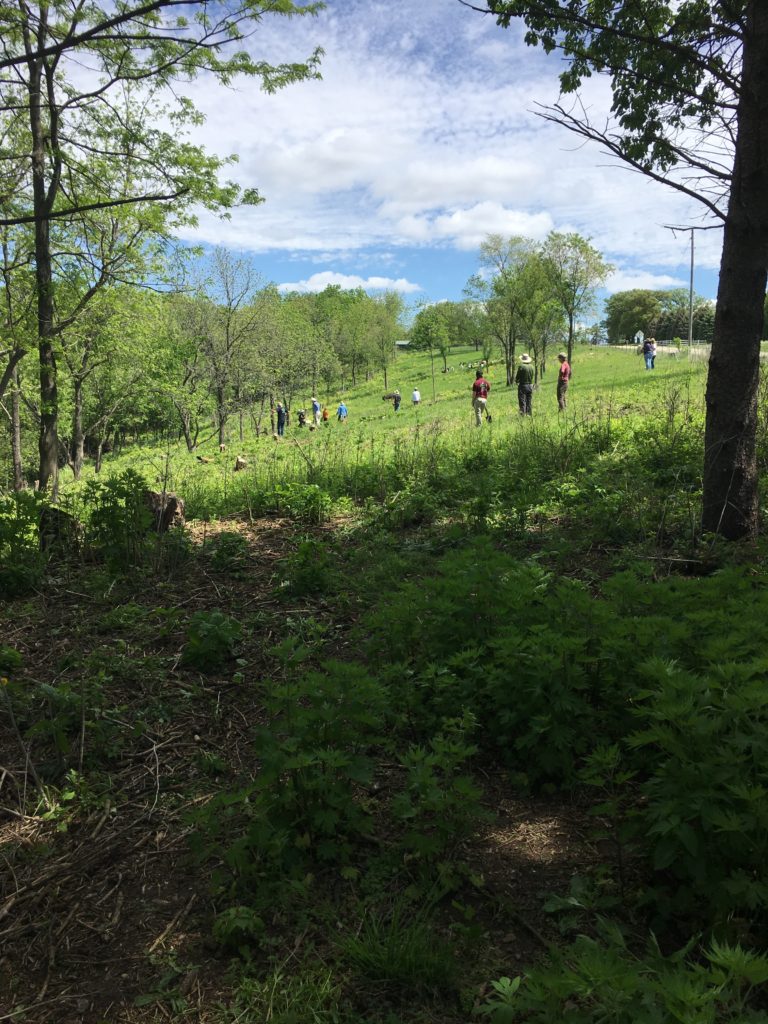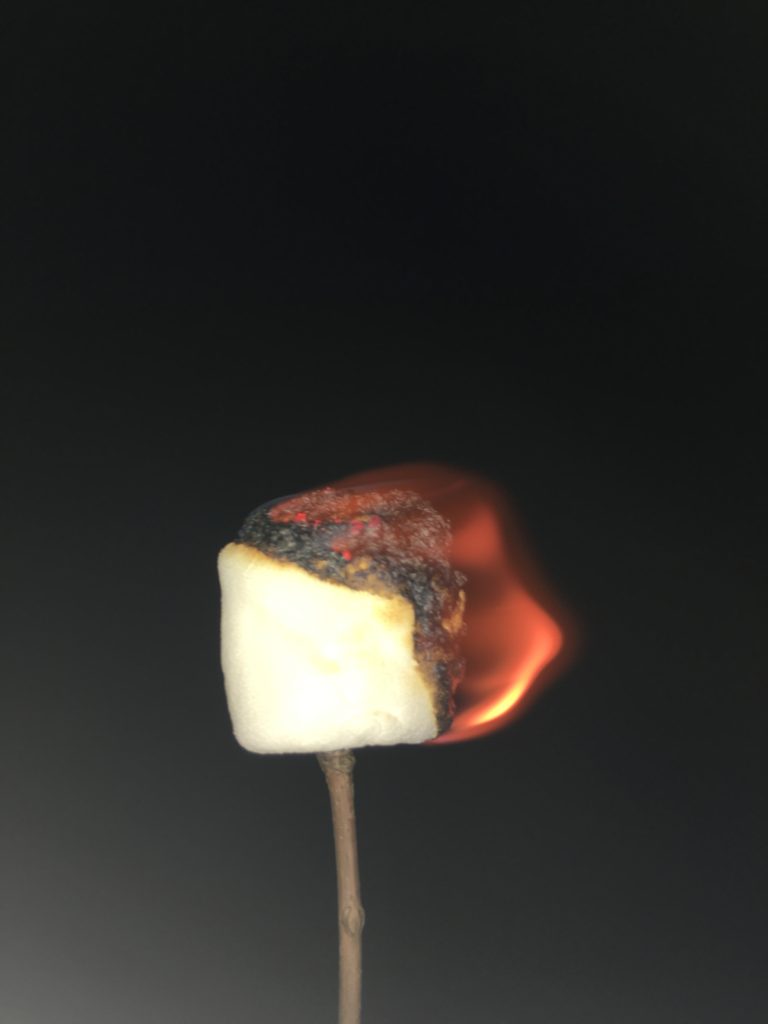Today, May 25th, the adventure of FARM truly begins. This is just the first stretch of travels through Iowa. Today we headed to Whiterock Conservancy almost two hours from our home-base in Radcliffe. At Whiterock Conservancy we worked eliminating invasive plants on one of the Conservancy’s oak savanna plots. We pulled weeds, dug up thistle (a vicious plant), and picked up sticks. These are materials the goats on the conservancy will not eat. The goats’ job at the conservancy is to help keep weeds down and they are protected by a guardian donkey. I was skeptical if the goats needed the guard donkey more than me after meeting my match in an eight-year old boy. I was preyed upon by this child who thought it was his job to slap me with thistle, throw worms and rocks at my head. After hours of doing this work, I really wished we had just mowed it down with a lawnmower. Getting rid of weeds without chemicals is labor intensive and time consuming. I can understand more now about why farmers resort to using pesticides even if they aren’t the best practice.

Later, we visited with Liz Garst. A main focus of conversation with Liz revolved around soil health. The Whiterock Conservancy is located in the Southern Drift Plain and Prairie Pothole region. The Prairie Pothole Region has terrible natural drainage and therefore need tiling to make the land farmable. Even though tiling is a controversial topic, regulation declares that “by definition tile drainage is good.” Good for farming, but not soil health. Iowa has some of the richest soils. However, since the time Iowa began farming, half of the topsoil and organic matter has been lost. This has implications not only for soil richness but also water quality. Without the filter that Iowa’s soil provides, it no o longer has capacity to reduce pollutants. The Iowa Environmental Council portrayed the image of farmers using anhydrous ammonia as the main contributor to nitrate pollution. However, Liz Garst didn’t think that added nitrogen was the main problem for water quality and the hypoxic zone. She noted that Iowa’s soil are natrually rich in nitrogen; only by improving soil quality are you going to really reduce the nitrogen problem. Another contrast I found in talking with Liz Garst was that she stated that farmers really do not care about water. I found this surprising because almost every farmer we have visited up to this point has defended their farm practices by stating that they wouldn’t pollute the water that they themselves drink.
We ended the day by building a fire and roasting marshmallows and making smores. It was a relaxing way to end a tiring but great day.

